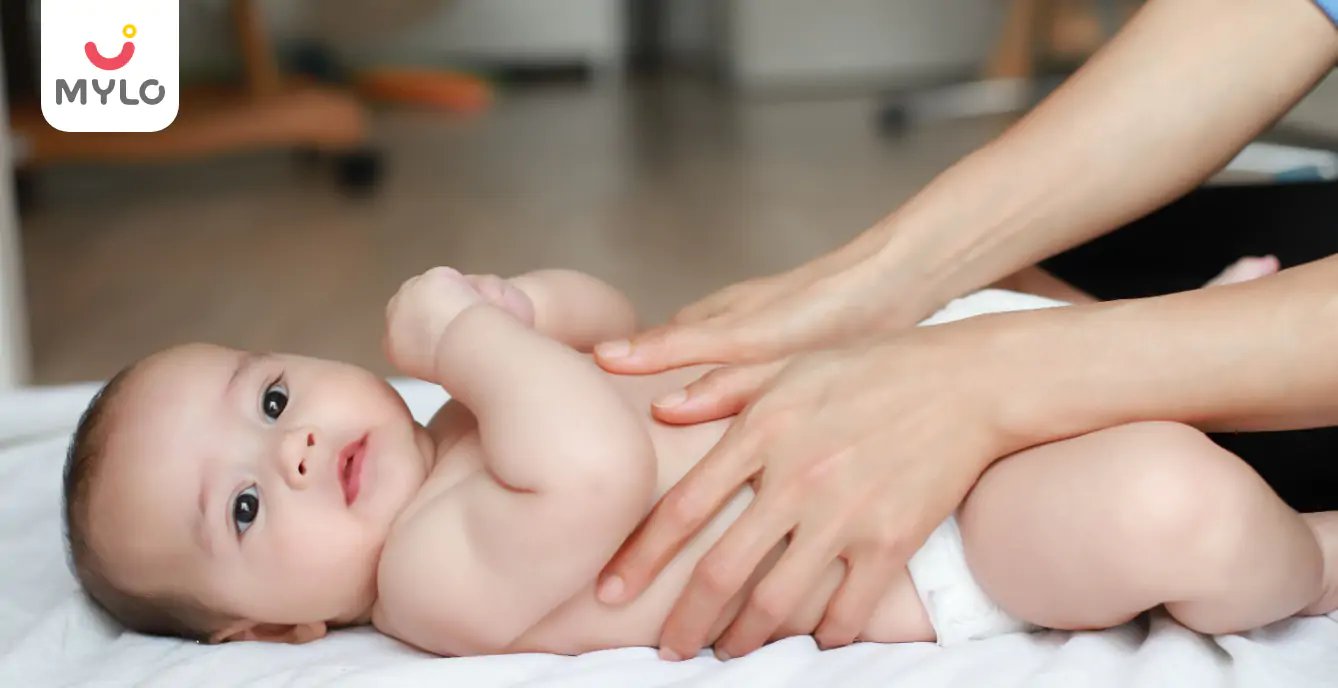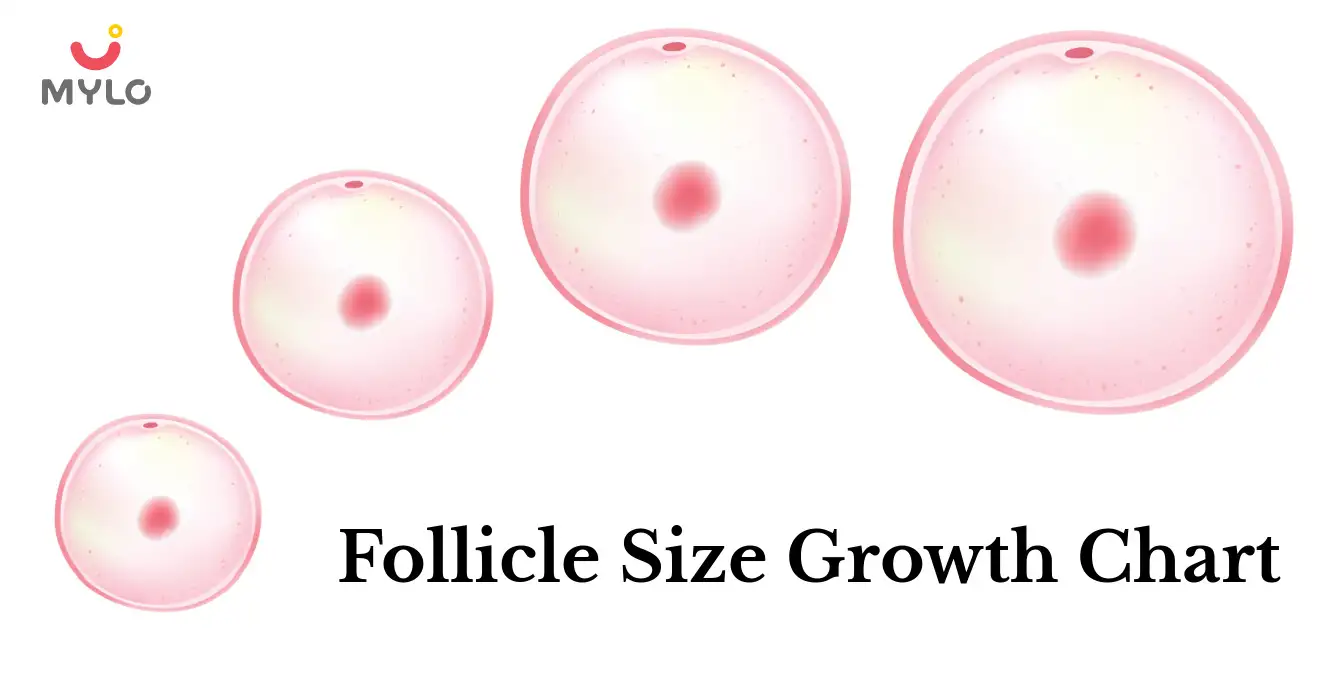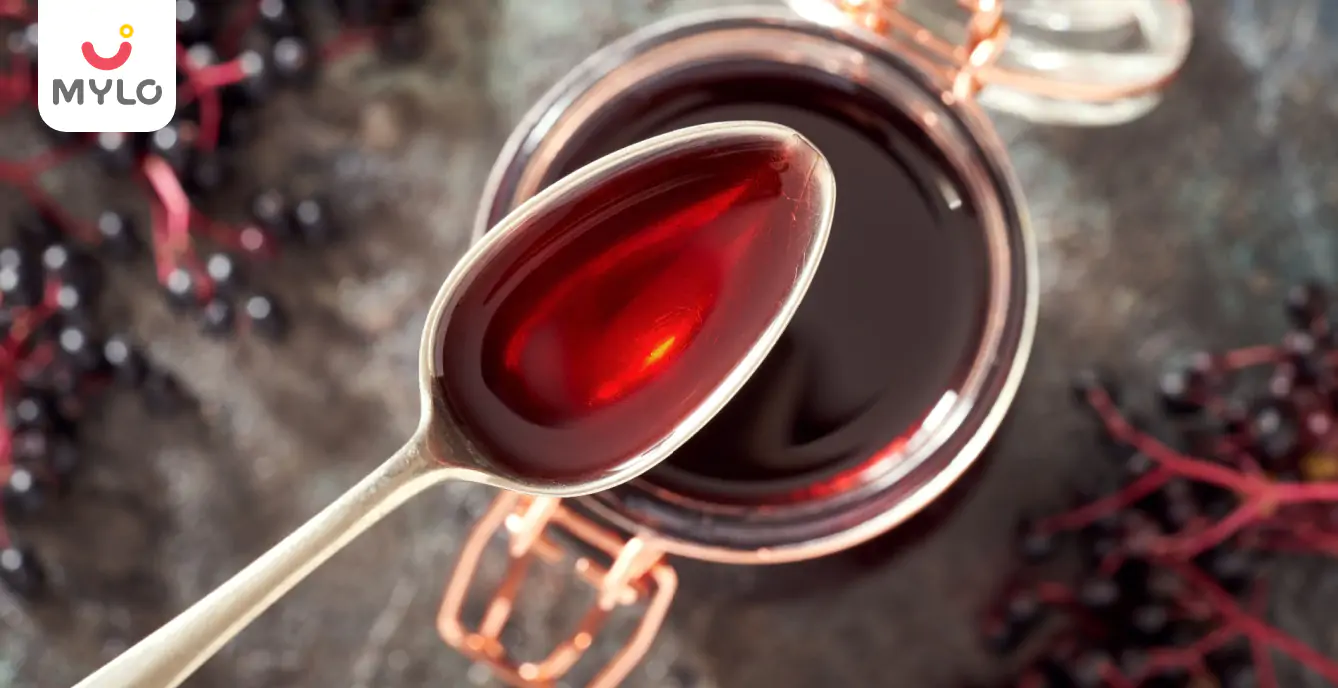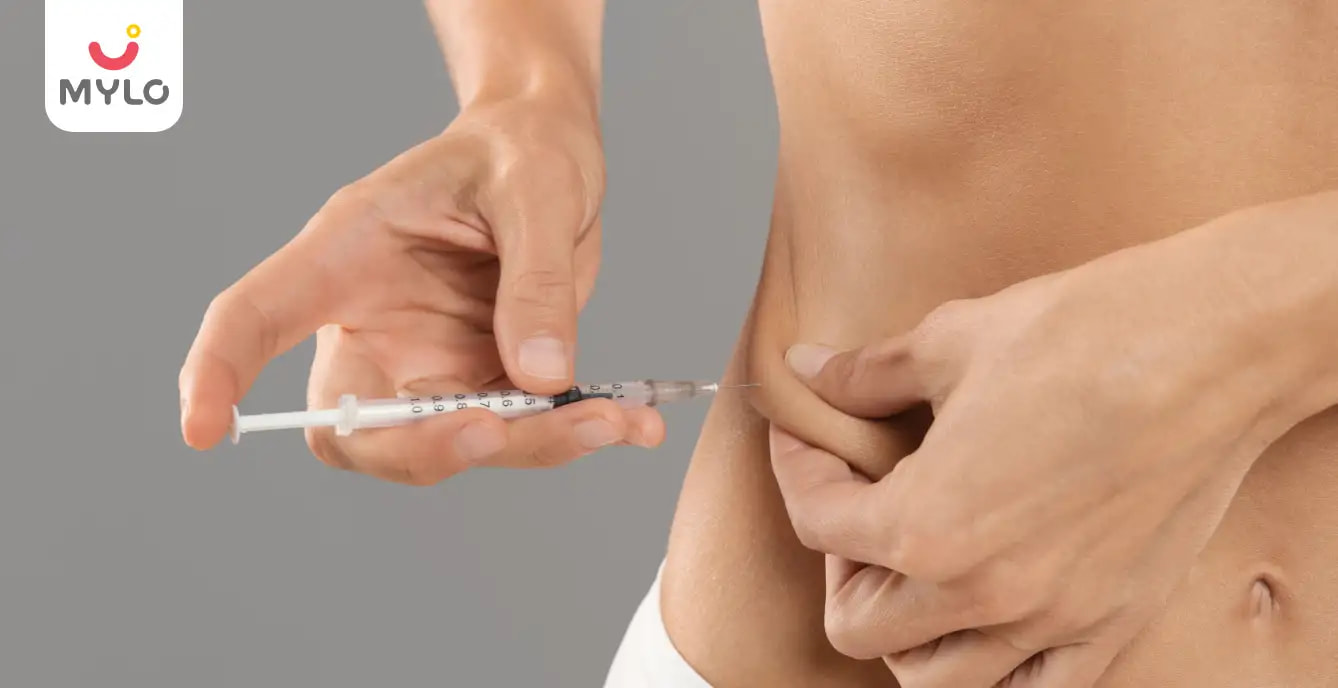Get MYLO APP
Install Mylo app Now and unlock new features
💰 Extra 20% OFF on 1st purchase
🥗 Get Diet Chart for your little one
📈 Track your baby’s growth
👩⚕️ Get daily tips

OR


Article Continues below advertisement
In this Article
- What is FSH Injection or Urofollitropin Injection?
- What are some common Urofollitropin Injection uses?
- 1. Treats infertility due to poor follicular development
- 2. Helps ovaries to produce more eggs
- 3. Stimulates growth and development of follicles
- 4. Increases chances of pregnancy
- What's the difference between FSH 75 Injection and FSH 150 Injection?
- Are there any side effects of FSH injection?
- FAQ's
- 1. When is FSH injections given?
- 2. Does FSH injection improve egg quality?
- Conclusion
Hormones
Are FSH (Urofollitropin) Injections an Effective and Safe Fertility Treatment For You?
Updated on 28 September 2023



Medically Reviewed by
Dr. Shruti Tanwar
C-section & gynae problems - MBBS| MS (OBS & Gynae)
View Profile

What is FSH Injection or Urofollitropin Injection?
FSH Injection, also known as Urofollitropin Injection, is a medication used in fertility treatments. It contains follicle-stimulating hormone (FSH), which is a hormone naturally produced in the body. FSH plays a crucial role in the development and maturation of eggs in women and sperm production in men. In cases where there is a deficiency of FSH, FSH injections can be administered to stimulate the ovaries or testes and enhance fertility.
What are some common Urofollitropin Injection uses?
Mentioned below are the common uses of Urofollitropin Injection:
1. Treats infertility due to poor follicular development
One of the primary uses of FSH injections is to treat infertility caused by poor follicular development. FSH stimulates the growth and development of follicles in the ovaries. When there is a deficiency of FSH, the ovaries may not produce enough mature eggs for fertilization. FSH injections can help overcome this deficiency and increase the chances of successful conception.
Article continues below advertisment
2. Helps ovaries to produce more eggs
FSH injections can also be used to stimulate the ovaries to produce more eggs. In some cases, women may have a lower egg reserve or diminished ovarian function, making it difficult to conceive naturally. By administering FSH injections, the ovaries are encouraged to produce multiple follicles, increasing the chances of obtaining healthy eggs for fertilization.
3. Stimulates growth and development of follicles
The primary purpose of FSH injections is to stimulate the growth and development of follicles within the ovaries. Follicles are small sacs that contain eggs, and they need FSH to mature properly. FSH injections provide the necessary hormonal support to ensure that follicles grow and develop as they should, increasing the likelihood of successful ovulation and pregnancy.
4. Increases chances of pregnancy
By addressing poor follicular development and promoting follicle growth, FSH injections significantly increase the chances of pregnancy. The injection helps to optimize the conditions necessary for successful conception. When combined with other fertility treatments, such as in vitro fertilization (IVF), FSH injections can further enhance the chances of a successful pregnancy.
You may also like: FSH LH Prolactin Test: What This Group of Tests Can Tell You About Your Fertility
What's the difference between FSH 75 Injection and FSH 150 Injection?
FSH injections are available in different dosages, such as FSH 75 and FSH 150. The main difference between the two is the concentration of FSH in each injection. FSH 75 contains 75 international units (IU) of FSH, while FSH 150 contains 150 IU of FSH. The choice of dosage depends on various factors, including the individual's age, medical history, and response to initial treatments. Your doctor will determine the appropriate dosage for you, based on all these factors.
Article continues below advertisment
Are there any side effects of FSH injection?
As with any medication, FSH injections can have potential side effects. The most common side effects of the FSH injection include injection site reactions, such as redness, swelling, or pain. Some women may also experience abdominal discomfort or bloating due to the stimulation of the ovaries. In rare cases, ovarian hyperstimulation syndrome (OHSS) can occur, which is characterized by severe abdominal pain, nausea, vomiting, and rapid weight gain. It is essential to discuss potential side effects with your doctor and seek medical attention if you experience any severe symptoms.
You may also like : Understanding Follicular Study A Comprehensive Guide to Female Fertility
FAQ's
1. When is FSH injections given?
FSH injections are typically given as part of a carefully planned fertility treatment cycle. The timing of administration will depend on various factors, including the individual's menstrual cycle and the treatment protocol recommended by the doctor. FSH injections are usually initiated on specific days of the menstrual cycle to optimize follicle development and ovulation. The duration of treatment can vary from person to person but typically lasts around 7-14 days. Your doctor will provide specific instructions on when and how to administer the injections.
2. Does FSH injection improve egg quality?
While FSH injections primarily focus on stimulating follicle development, they can indirectly improve egg quality. By promoting the growth of multiple follicles, FSH injections increase the chances of obtaining mature and healthy eggs. The quality of eggs is essential for successful fertilization and implantation. FSH injections help optimize the conditions necessary for high-quality eggs to develop, increasing the likelihood of a successful pregnancy.
Conclusion
FSH (Urofollitropin) injections can be an effective and safe fertility treatment for individuals with poor follicular development or other fertility-related issues. These injections help stimulate the ovaries, promote follicle growth, and increase the chances of successful conception. FSH injections come in different dosages, and potential side effects should be discussed with a healthcare professional. Proper timing and administration of FSH injections are crucial for optimal results.
Article continues below advertisment
References
1. Taketani Y, Kelly E, Yoshimura Y, Hoshiai H, Irahara M, Mizunuma H, Saito H, Andoh K, Yanaihara T.(2010). Recombinant follicle-stimulating hormone (follitropin alfa) versus purified urinary follicle-stimulating hormone in a low-dose step-up regimen to induce ovulation
2. Lenton E, Soltan A, Hewitt J, Thomson A, Davies W, Ashraf N, Sharma V, Jenner L, Ledger W, McVeigh E.(2010).Induction of ovulation in women undergoing assisted reproductive techniques: recombinant human FSH (follitropin alpha) versus highly purified urinary FSH (urofollitropin HP).





Medically Reviewed by
Dr. Shruti Tanwar
C-section & gynae problems - MBBS| MS (OBS & Gynae)
View Profile


Written by
Anandita Sharma
Drawing on more than a decade of expertise in administration, Anandita Sharma currently serves as a content operations e
Read MoreGet baby's diet chart, and growth tips

Related Articles
Related Questions
Hello frnds..still no pain...doctor said head fix nhi hua hai..bt vagina me pain hai aur back pain bhi... anyone having same issues??
718 views
Kon kon c chije aisi hai jo pregnancy mei gas acidity jalan karti hain... Koi btayega plz bcz mujhe aksar khane ke baad hi samagh aata hai ki is chij se gas acidity jalan ho gyi hai. Please share your knowledge
727 views
I am 13 week pregnancy. Anyone having Storione-xt tablet. It better to have morning or night ???
730 views
Hlo to be moms....i hv a query...in my 9.5 wk i feel body joint pain like in ankle, knee, wrist, shoulder, toes....pain intensity is high...i cnt sleep....what should i do pls help....cn i cosult my doc.
733 views
Influenza and boostrix injection kisiko laga hai kya 8 month pregnancy me and q lagta hai ye plz reply me
743 views
Related Topics
RECENTLY PUBLISHED ARTICLES
our most recent articles

Baby Massage
The Ultimate Guide to Choosing a Baby Massage Oil for Summer

Reproductive health
The Ultimate Guide to Understanding a Follicle Size Growth Chart

PCOS & PCOD
Fruits for PCOS: Your Guide to Making Healthy Choices

PCOS & PCOD
Is Milk Good for PCOS: Exploring the Dairy Dilemma

PCOS & PCOD
The Ultimate Guide to Using Ashokarishta for PCOS

PCOS & PCOD
PCOS Pain: The Ultimate Guide to Causes and Effective Management
- 10 Best Mystery Books to Read in 2023
- 10 Best Non-Fiction Books to Read in 2023
- Is Ghee Good for PCOS: The Ultimate Guide to Benefits and Ways to Consume
- Is Curd Good for PCOS: The Ultimate Guide to Debunking Myths and Discovering Benefits
- Dark Chocolate for PCOS: Unlocking the Potential of a Guilt-Free Indulgence
- Beetroot for PCOS: Discovering a Natural Approach to Managing Symptoms
- Soy for PCOS: Should You Eat it or Avoid It?
- Cinnamon for PCOS: Discovering the Natural Support You've Been Missing
- When Do Babies Start Walking?
- The Ultimate Guide to 4th Month Pregnancy Symptoms
- Your Guide to 2 Months Pregnant Symptoms: What to Expect
- The Ultimate Balanced Diet Chart: Your Guide to Optimal Nutrition
- Mundan Ceremony: A New Parent's Guide to Customs, Traditions and Celebrations
- Dates for PCOS: How to Harness their Health Benefits


AWARDS AND RECOGNITION
Mylo wins Forbes D2C Disruptor award
Mylo wins The Economic Times Promising Brands 2022
AS SEEN IN
















At Mylo, we help young parents raise happy and healthy families with our innovative new-age solutions:
- Mylo Care: Effective and science-backed personal care and wellness solutions for a joyful you.
- Mylo Baby: Science-backed, gentle and effective personal care & hygiene range for your little one.
- Mylo Community: Trusted and empathetic community of 10mn+ parents and experts.
Product Categories
baby carrier | baby soap | baby wipes | stretch marks cream | baby cream | baby shampoo | baby massage oil | baby hair oil | stretch marks oil | baby body wash | baby powder | baby lotion | diaper rash cream | newborn diapers | teether | baby kajal | baby diapers | cloth diapers |







